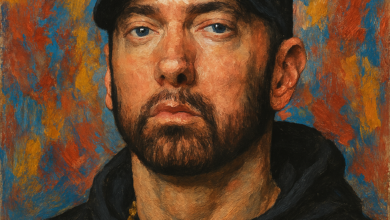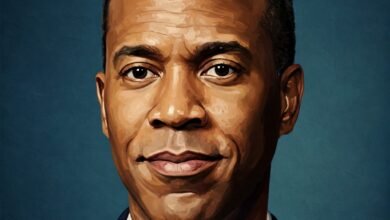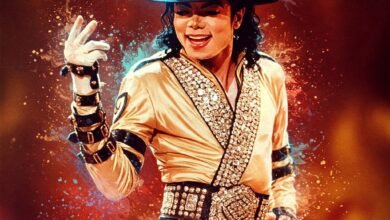Carl Dean: The Man Behind Dolly Parton’s Success

Introduction to Carl Dean
Carl Dean, born on July 20, 1936, in Nashville, Tennessee, is a prominent figure primarily recognized for his enduring marriage to the iconic country music star, Dolly Parton. Their relationship has captured the public’s imagination, yet much of Dean’s life remains relatively private despite his wife’s superstardom. Raised in a modest family, Dean’s upbringing in the vibrant music scene of Nashville played a significant role in shaping his character and outlook on life. Following high school, he began working in the construction industry, which provided him not only financial stability but also a sense of independence.
The paths of Carl Dean and Dolly Parton first intersected in 1964, when they met outside a laundromat in Nashville. At that time, Parton was an aspiring songwriter, having recently moved to the city to pursue her dreams in music. Their initial encounter left a lasting impression on both, sparking a connection that ultimately led to their marriage in 1966. Their bond blossomed during a transformative period in Parton’s life as she transitioned from a nascent artist to a pioneering force in the music industry.
Dean has maintained a low profile throughout most of his life, choosing to stay out of the limelight that surrounds his wife. This decision has allowed Dolly Parton to shine brightly in her career while fostering a strong and supportive relationship at home. Many have remarked on Dean’s unwavering support for Parton’s artistic pursuits, illustrating that their partnership is built on mutual respect and understanding. As Dean continues to remain a steadfast presence in Parton’s life, his influence on her success remains an essential, albeit understated, aspect of her remarkable journey.
The Early Years of Dolly and Carl’s Relationship
Dolly Parton and Carl Dean’s relationship began in the summer of 1964, a time that would mark the onset of a partnership that would become integral to Parton’s life and career. Their initial encounter took place outside a laundromat in Nashville, Tennessee, where the young singer was living and pursuing her dreams in the music industry. Dean was captivated by Parton’s beauty and charm, and he approached her shortly after spotting her. This simple meeting sparked a romance that would not only endure but flourish through the challenges of fame and public scrutiny.
The early days of their courtship were characterized by a joyful simplicity, quite contrary to the whirlwind life that awaited Parton as her career began to take flight. Their dates often involved quiet moments away from the hustle and bustle of the city, where they would find refuge in each other’s company. Carl’s supportive nature allowed Dolly to express herself freely, and their shared laughter helped establish a solid foundation for their relationship. In fact, it was his ability to make her feel at ease amidst the pressures of her rising career that endeared him to her even more.
As they continued to date, their bond deepened, showcasing the dynamics of a thoughtful partnership. While Dolly was increasingly recognized as a talented singer and songwriter, Carl opted for a more private life, running a successful construction business. This choice exemplified the respect and understanding they held for one another’s aspirations, allowing Dolly the freedom to expand her artistry. Their early love story became a testament to mutual respect, dedication, and love—a dynamic duo that would navigate the complexities of fame together.
Carl Dean’s Support and Influence on Dolly Parton’s Career
Carl Dean has played a pivotal role in the career of Dolly Parton, serving as both a steadfast partner and a vital support system throughout her rise to fame. His influence is not solely derived from his presence; rather, it encompasses his commitment to her artistic and professional endeavors. From the outset of their relationship, Carl has been a constant source of encouragement, often providing Dolly with the confidence she needed to pursue her dreams in a challenging industry.
One of the most significant ways Carl Dean has impacted Dolly Parton’s career is by respecting her artistic choices while offering sound advice during pivotal moments. He has been known to contribute insight on her music, helping her to navigate key decisions about albums and songs. Dolly has often mentioned how his perspective has helped her create a brand that resonates not only with her fans but also reflects her true self. This unique blend of support ensured that she remained authentic while simultaneously making strategic career moves.
Moreover, during challenging times in her career, Carl has been a calming presence for Dolly, allowing her to focus on her work without the stress of external pressures. Whether it involved managing the complexities of fame or addressing the inevitable challenges in the music industry, Carl Dean has consistently been her ally, providing emotional stability and encouragement. His influence has allowed her to maintain a clear vision for her career, crucial in an industry prone to constant shifts.
Additionally, Carl Dean’s low-profile approach has effectively shaped Dolly Parton’s public image. By staying out of the limelight, he has helped maintain a sense of mystery surrounding their relationship, allowing Dolly to shine individually as an artist while knowing she has unwavering support at home. This balance has undoubtedly contributed to both her personal and professional success.
Carl Dean: The Private Man Behind the Public Figure
Carl Dean, the husband of the iconic entertainer Dolly Parton, has consistently chosen to maintain a low profile, contrasting sharply with his wife’s vibrant public life. This decision stems from a variety of personal values and preferences, all rooted in a profound commitment to their relationship and a desire for normalcy amidst the chaos of fame. While Dolly Parton has become a household name through her music, television appearances, and philanthropic efforts, Dean has remained largely out of the limelight, allowing Parton to shine as an artist while he supports her endeavors from the sidelines.
The couple, who have been married since 1966, exemplify a relationship built on mutual respect and understanding, largely free from the pressures of public scrutiny. Dean’s preference for privacy not only highlights his character but also serves as the cornerstone for the couple’s enduring marriage. By stepping back from the public eye, Dean has created a stable environment for Parton, allowing her to cultivate her career without the constant distractions that often accompany fame. Their ability to separate their personal lives from Parton’s public persona has undoubtedly contributed to her success.
This approach underscores the importance of having a supportive partnership outside the glimmer of fame. It allows for a depth of connection that can often be lost in the hustle and bustle of celebrity life. Their dedication to each other, coupled with Dean’s intentional low profile, reflects a profound acknowledgment that success can be reinforced by strong, private foundations. Ultimately, while Dolly Parton captivates the world with her vibrant persona, Carl Dean remains the steadfast anchor, ensuring that their relationship thrives away from the public’s gaze, highlighting the significance of privacy in their shared journey.





















